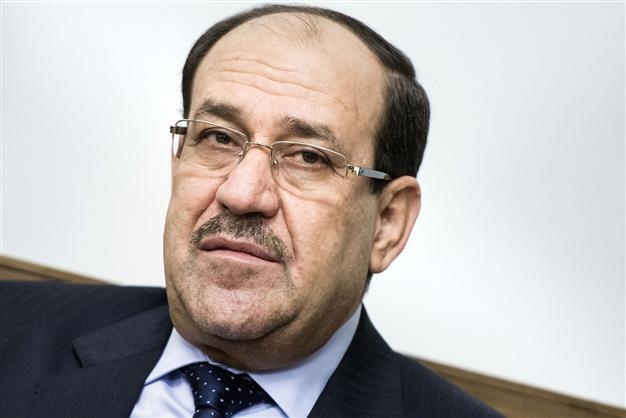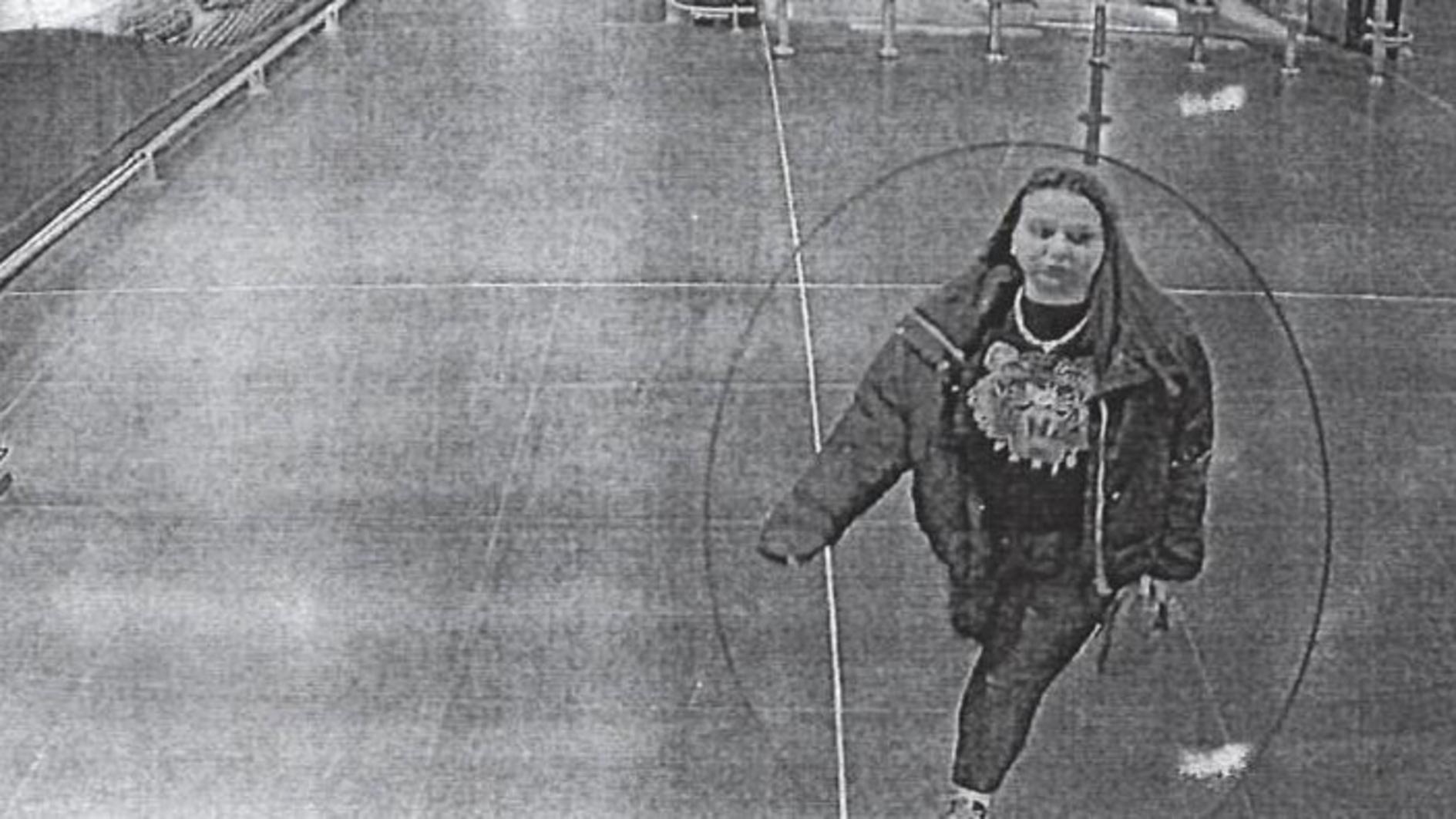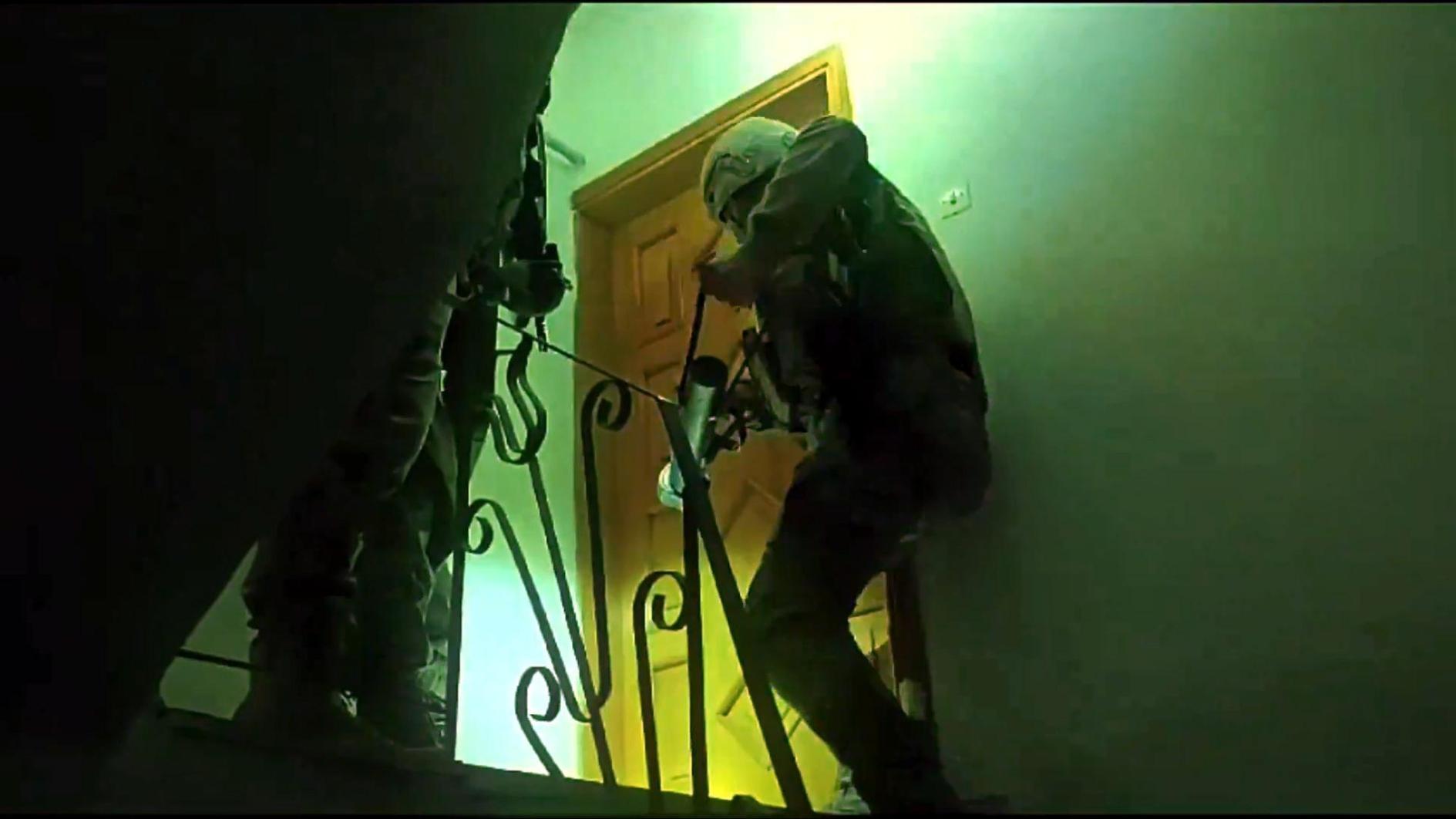Iraq's Maliki dismisses Mosul fall report as 'worthless'
BAGHDAD - Agence France-Presse

A picture taken on June 23, 2014 shows former Iraqi Prime Minister Nuri al-Maliki meeting with US Secretary of State (unseen) at the Prime Minister's Office in Baghdad. AFP Photo
Former Iraqi premier Nuri al-Maliki on August 18 dismissed as "worthless" a parliamentary report blaming him and others for the jihadist takeover of second city Mosul last year."There is no value in the result that emerged from the parliamentary investigation committee on the fall of Mosul, which was dominated by political differences and was not objective," Maliki said on his Facebook page.
"What happened in Mosul was a conspiracy planned in Ankara, then the conspiracy moved to Arbil," Maliki said in a second post, referring to the capitals of Turkey and Iraq's autonomous Kurdish region, both long-time foes of his.
The two-term premier is currently in Iran, where he was due to meet Supreme Leader Ayatollah Ali Khamenei on August 18, an official in his office said.
The Islamic State of Iraq and the Levant (ISIL) jihadist group seized Mosul in June 2014, then overran a third of the country in a devastating offensive that swept security forces aside.
The report on the disaster was presented to the parliament speaker Salim al-Juburi on August 16, and lawmakers voted to refer it to the judiciary the following day.
"None of the names mentioned in this report were deleted, and all of them will be sent to the judiciary," Jubur told a news conference on August 17.
"An investigation and follow up and accounting of all those who caused the fall of Mosul will be carried out," he said.
Maliki -- who is now a vice president -- is widely viewed as having played a major role in the disaster, angering Sunni Arabs who say they were marginalised and targeted by his government, which contributed to ISIL's success.
He also appointed commanders based on personal loyalty rather than competence, and was commander-in-chief of the armed forces during two years in which the Iraqi military did not carry out necessary training, leading to a decline in skills.
Various former senior officials were also named in the report detailing the committee's findings, which has not been publicly released.
These include defence minister Saadun al-Dulaimi, army chief of staff Babaker Zebari, his deputy Aboud Qanbar, ground forces commander Ali Ghaidan, Nineveh operations command chief Mahdi al-Gharawi and the province's governor, Atheel al-Nujaifi.
















